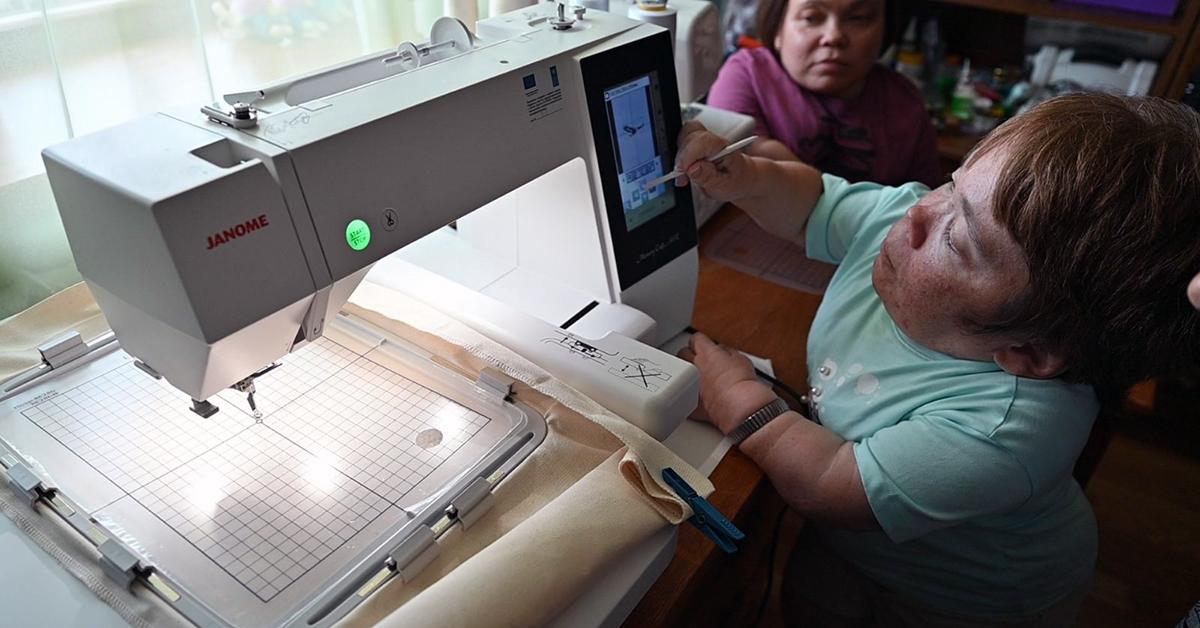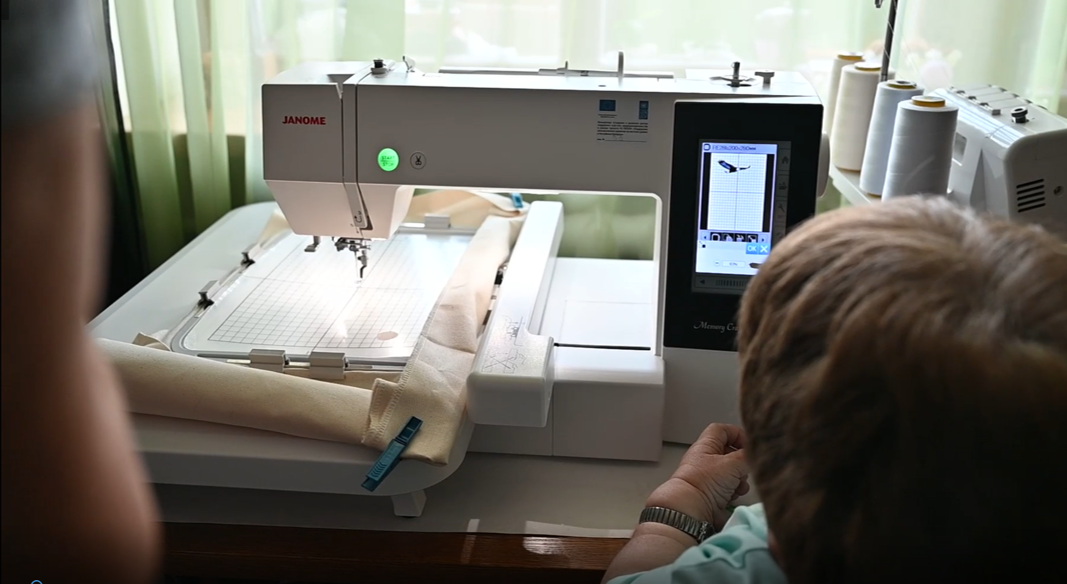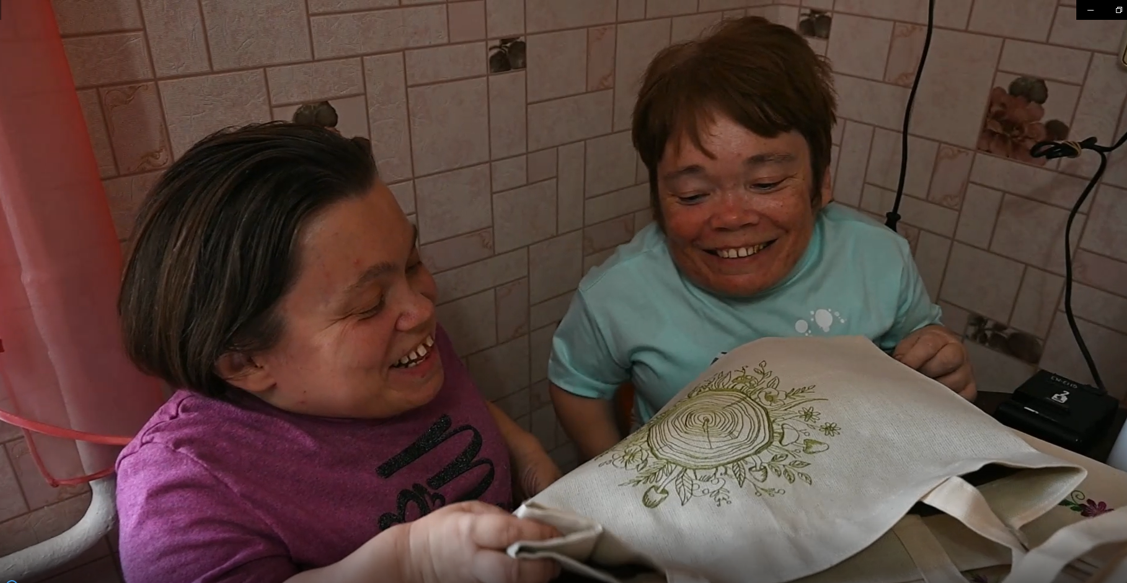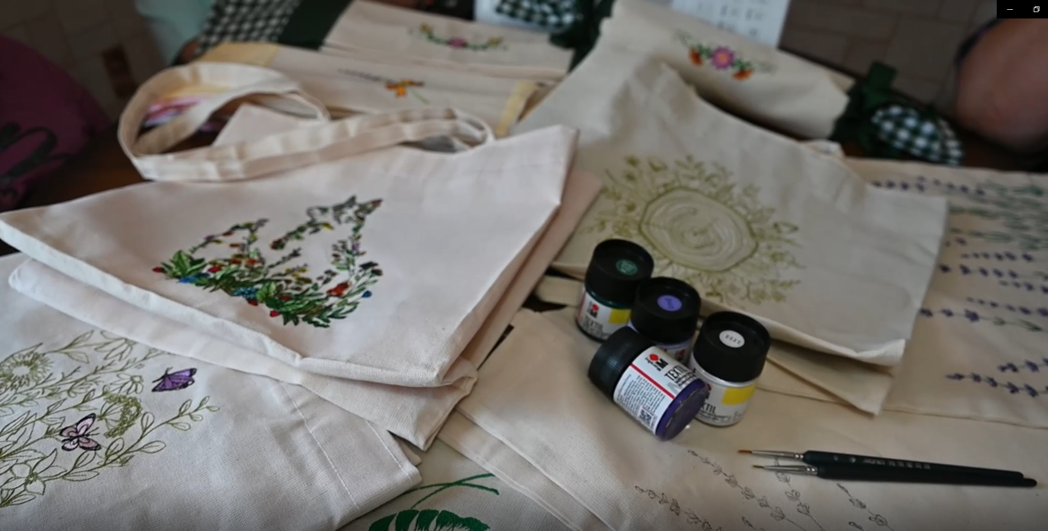Before opening their own business, sisters Lyudmila and Svetlana Golovko from the town of Biaroza, Belarus, worked in community jobs. Lyudmila worked at the local library for 12 years, and Svetlana organized craft workshops for preschool kids. However, the sisters quitted their jobs due to the emerging health issues. The COVID-19 crisis made the situation worse leaving Lyudmila and Svetlana without any source of income.
The young women did not give up. To get an advice and help, they turned to the newly opened Rural Eco-Entrepreneurship Support Centre, established by the United Nations Development Programme (UNDP) and the Belarusian Ministry of Economy with financial support from the European Union. There, the Golovko were motivated to find careers as entrepreneurs and came up with the idea of opening their own business for making and selling handmade bags from natural materials.
To support the start-up, the center provided the women modern sewing and embroidery machines. At first, Lyudmila and Svetlana had difficulty working on the new high-tech equipment, but soon their technical skills had improved significantly. Today, the bags they make are very popular in the Biaroza community and beyond.
Lyudmila and Svetlana Golovko make original eco-friendly bags from cotton and linen and decorate them with stylish embroidery. The women position their bag as an item for everyday use – shopping, travelling, work and leisure. They believe that by promoting reusable bags made from natural materials, they are helping to protect the environment from single-use plastic pollution.
"The main advantage of an eco-bag is its durability and longevity. A cloth bag does not tear and lasts as long as three or four plastic bags," says Svetlana. - Another advantage is cost efficiency. Many local shops charge money for plastic bags. It is estimated that a family of three spends more than 40 BYN (USD 15) on disposable bags over the course of a year. A reusable eco-bag costs 18 BYN (7 USD) and can be used for at least a couple of years. So not only you can save your own money, but also the money spent by taxpayers on municipal waste collection and disposal."
"When we think about the most important things in our lives, we usually have a picture in our minds: families, loved ones, and friends. People think about education, upbringing, the moral aspects of life. Some will say that food, clothing, entertainment are very important as well. There are also people who cannot imagine their life without a favorite job, hobby or sport. But to have all that, we need to appreciate and care for life and nature," says Lyudmila Golovko.
The Golovko sisters have no plans to rest on their laurels and are thinking about making their business even more famous and profitable by increasing sales and developing further.
According to the UNDP study "Assessing the impact of the COVID-19 pandemic on small and medium businesses in Belarus", 8 out of 10 businesses are affected by the negative impact of the pandemic. Women-led enterprises are among the most vulnerable. This is mainly due to the fact that women in Belarus are predominantly employed in the service industry: tourism, retail, catering, which is one of the sectors most impacted by the pandemic and its consequences. In addition, during the pandemic, women face additional responsibilities of caring for sick relatives and looking after children who did not attend kindergarten or school. The study also found that women-led businesses were more likely to have their bank financing turned down.
UNDP seeks to promote inclusive and sustainable human development and to alleviate poverty in all of its forms. Working with national and local partners in the regions, UNDP offers and tests solutions to support and develop small and medium sized enterprises amid COVID-19. Local entrepreneurship and infrastructure support provide new jobs, including for persons with disabilities, strengthen local communities' resilience in the face of pandemics and other global issues, unlock new financial resources, and assist regions in combating the spread of poverty during pandemics.
The Rural Eco-Entrepreneurship Support Centre in Biaroza, Brest region of Belarus, is one of ten Centers established within the project "Support to Local Economic Development in Belarus" to support rural entrepreneurship. The project is implemented by the United Nations Development Programme (UNDP) in partnership with the Ministry of Economy of the Republic of Belarus and is funded by the European Union.

 Locations
Locations








